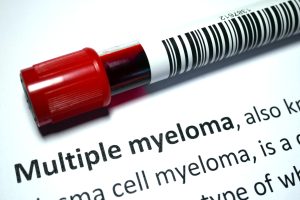
24 RCCA Physicians Named to 2025 Castle Connolly ‘Top Doctors’ List for Exceptional Cancer Care
A cancer diagnosis can be frightening. An individual may worry about how, or if, they will get better. The future becomes unclear and the strain
HIPAA Alert: Potential Data Breach Learn More
Questions on Oncology, Hematology and/or Infusion Clinical Services due to COVID-19 Crisis – CALL 833-698-1623
Important Information for Our Patients Regarding the Coronavirus.
RCCA Providing Area Cancer Patients with Access to Care During Coronavirus Outbreak
RCCA Offering Patients Virtual Visits During Coronavirus Pandemic
A vape is a battery-operated device used to inhale aerosols that may contain nicotine or other substances. Also known as e-cigarettes, e-cigs, or vape pens, these devices may be disposable or refillable. Some resemble conventional cigarettes, while others have a small rectangular or cylindrical tank. Some users prefer vaping to smoking traditional cigarettes because they believe vaping is unlikely to cause lung cancer, but statistics show vaping is not a safe alternative to tobacco.
The medical oncologists and hematologists of Regional Cancer Care Associates (RCCA) provide comprehensive care for cancer and blood disorders throughout New Jersey, Connecticut, Maryland, and the Washington, D.C., area. Here, RCCA outlines the potential health risks of vaping and its possible link to lung cancer.

Most e-cigarettes have a cartridge or tank that holds liquid. This liquid typically contains nicotine, although there also are vaping fluids that contain tetrahydrocannabinol (THC), the psychoactive compound found in cannabis plants. A small atomizer heats the liquid, which is then inhaled in aerosol form through a mouthpiece.
There are hundreds of different e-cigarette brands on the market. Some e-cigarettes are battery-powered, while others recharge through a USB port. The manufacturing, labeling, promotion, and sale of e-cigarettes are regulated by the U.S. Food and Drug Administration.
Although they look different from cigarettes, vaping devices are not necessarily safer. Just like cigarettes, cigars, and tobacco pipes, many e-cigarettes contain nicotine, a highly addictive drug.
E-cigarettes may also contain other harmful chemicals linked to lung disease, including:
Vaping devices may also contain harmful heavy metals, such as lead, nickel, and cadmium. When people inhale the vapor in an e-cigarette, they are coating the inside of their lungs with these potentially harmful substances.
Advertisers may try to promote vaping as a safer alternative to cigarettes, but consumers should be wary. Because vaping is a relatively new trend, there is not enough long-term data to know for sure whether e-cigarettes cause cancer. However, many of the chemicals often found in e-cigarettes have been linked to an increased risk of lung cancer.
Research also indicates that people who use e-cigarettes may be at elevated risk for:
This is a chronic respiratory condition that can get worse over time. Also known as popcorn lung, bronchiolitis obliterans can develop because of the presence of an organic compound called diacetyl that is found in e-cigarettes. Over time, breathing in diacetyl and other chemicals can cause scarring in the lungs and narrowing of the airways. Symptoms include shortness of breath, wheezing, and chronic cough. Patients with bronchiolitis obliterans may need to use an inhaler or oxygen therapy.
Just like conventional cigarettes, e-cigarettes contain nicotine. This is a highly addictive stimulant that travels through the bloodstream into the brain, where it activates nicotine receptors. These receptors release dopamine, a feel-good chemical, but the dopamine hit does not last long. After using nicotine, a person will go into withdrawal and crave more. Nicotine addiction causes numerous side effects, such as:
People who are addicted to nicotine are at elevated risk for heart and lung disease, including small cell lung cancer (SCLC) and non-small cell lung cancer (NSCLC). Among teens and young adults, nicotine usage can negatively affect brain development.
Cigarette smoking is the number one cause of lung cancer. Other risk factors for lung cancer include:
Regional Cancer Care Associates offers advanced treatment for all forms of cancer, including SCLC and NSCLC, as well as treatment for both malignant and benign blood disorders. With multiple locations throughout New Jersey, Connecticut, Maryland, and the Washington, D.C., area, Regional Cancer Care Associates is staffed by expert, compassionate medical oncologists. Treatment options for lung cancer include:
Regional Cancer Care Associates can also connect patients with lung cancer to clinical trials and experimental therapies. For more information about oncology services at Regional Cancer Care Associates, request an appointment at one of our more than 20 locations or contact us today.
For more information or to schedule an appointment,
call 844-346-7222. You can also schedule an appointment by calling the RCCA location nearest you.

A cancer diagnosis can be frightening. An individual may worry about how, or if, they will get better. The future becomes unclear and the strain

Multiple myeloma (MM) is a rare type of blood cancer that often develops without early symptoms, making awareness of risk factors essential. Regional Cancer Care

A cancer diagnosis can bring a wide range of emotions, from fear and stress to sadness and hope. These feelings are a natural part of

Regional Cancer Care Associates is one of fewer than 200 medical practices in the country selected to participate in the Oncology Care Model (OCM); a recent Medicare initiative aimed at improving care coordination and access to and quality of care for Medicare beneficiaries undergoing chemotherapy treatment.